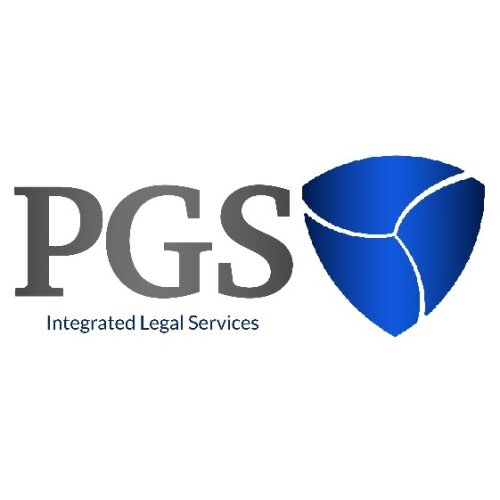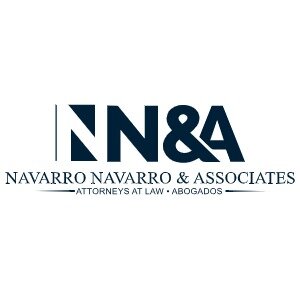Best Housing, Construction & Development Lawyers in Panama City
Share your needs with us, get contacted by law firms.
Free. Takes 2 min.
Free Guide to Hiring a Real Estate Lawyer
List of the best lawyers in Panama City, Panama
About Housing, Construction & Development Law in Panama City, Panama
Housing, Construction & Development Law in Panama City, Panama, is a dynamic area of legal practice that encompasses various regulations concerning urban planning, land use, property acquisition, construction permits, zoning laws, and residential development. The city has experienced significant growth, with numerous high-rise condominiums, commercial spaces, and infrastructure projects transforming its skyline. To manage this growth, various laws have been enacted to regulate development activities, ensure safety standards, and promote sustainable urban planning.
Why You May Need a Lawyer
Legal assistance may be required in numerous scenarios related to housing, construction, and development in Panama City. Property developers often need help navigating regulations and obtaining necessary permits. Buyers and sellers might seek assistance for contract drafting and due diligence during real estate transactions. Disputes can arise over zoning laws, land ownership, and breaches of construction contracts, all of which may require legal intervention. Lawyers can also play a critical role in ensuring compliance with environmental and safety regulations, thus helping prevent future legal issues.
Local Laws Overview
Key aspects of local laws in Panama City relevant to housing, construction, and development include zoning regulations, which dictate the permissible use of land parcels, and construction laws, which establish building standards and safety codes. Land registration laws provide a legal framework for recording property ownership, crucial for preventing disputes. Additionally, environmental laws regulate the impact of development on the natural environment. Understanding these laws is essential for any stakeholders involved in property development and transactions in Panama City.
Frequently Asked Questions
What permits are required for construction in Panama City?
Typically, construction projects require a building permit issued by the municipal authority. Depending on the project's scope, additional permits such as environmental impact assessments may be necessary.
How are zoning laws enforced in Panama City?
Zoning laws are enforced by municipal authorities who regulate land use in different parts of the city. These laws outline permissible activities and building designs to ensure they align with planning objectives.
What are the responsibilities of property developers regarding environmental regulations?
Developers must adhere to environmental laws, which may include conducting environmental impact studies and taking necessary steps to mitigate adverse effects on the environment.
What should I consider when purchasing property in Panama City?
When purchasing property, it's essential to verify ownership titles, understand zoning restrictions, ensure compliance with local regulations, and have a well-drafted purchase agreement reviewed by a lawyer.
What are the typical legal challenges in construction contracts?
Common legal challenges include disputes over contract terms, project delays, cost overruns, and breaches of contract. It is crucial for contracts to be clear and comprehensive to avoid such issues.
How do I resolve a property boundary dispute?
Boundary disputes can usually be resolved through negotiation between parties, but formal processes such as legal arbitration or litigation may be necessary if a mutual agreement cannot be reached.
What legal requirements must be met for selling a property?
Selling a property typically involves ensuring all tax obligations are fulfilled, obtaining a property appraisal, and drafting a legally compliant sales contract. A lawyer can facilitate this process to ensure compliance with legal requirements.
Can a foreigner own property in Panama City?
Yes, foreigners can own property in Panama City. It is advisable to work with a legal adviser to navigate the process and understand specific conditions relevant to foreign ownership.
What constitutes a breach of construction contract?
A breach of construction contract occurs when one party fails to fulfill its contractual obligations, which might involve incomplete work, delayed completion, or non-compliance with specifications.
How can I ensure compliance with safety standards during construction?
To ensure compliance, involve experienced architects and engineers familiar with local codes and continuously monitor construction processes. Furthermore, conducting regular inspections and audits can help adhere to safety standards.
Additional Resources
To further assist individuals and professionals, several resources are available:
- Municipio de Panamá (Panama City Municipality): Offers information on local regulations and permit applications.
- Registro Público de Panamá (Public Registry of Panama): For land registration and property records.
- Ministerio de Vivienda y Ordenamiento Territorial (Ministry of Housing and Territorial Planning): Governs urban planning and housing development policies.
- Ministerio del Ambiente (Ministry of Environment): Provides regulations and information on environmental compliance.
Next Steps
If you need legal assistance in the area of housing, construction, and development in Panama City, consider reaching out to a qualified local attorney. Start by identifying specific needs related to your situation and schedule consultations with potential lawyers to discuss your case. Look for attorneys with experience in real estate and construction law to ensure knowledgeable guidance. Additionally, engaging a licensed real estate agent or urban planner might provide valuable insights and complement legal advice in navigating complex regulations.
Lawzana helps you find the best lawyers and law firms in Panama City through a curated and pre-screened list of qualified legal professionals. Our platform offers rankings and detailed profiles of attorneys and law firms, allowing you to compare based on practice areas, including Housing, Construction & Development, experience, and client feedback.
Each profile includes a description of the firm's areas of practice, client reviews, team members and partners, year of establishment, spoken languages, office locations, contact information, social media presence, and any published articles or resources. Most firms on our platform speak English and are experienced in both local and international legal matters.
Get a quote from top-rated law firms in Panama City, Panama — quickly, securely, and without unnecessary hassle.
Disclaimer:
The information provided on this page is for general informational purposes only and does not constitute legal advice. While we strive to ensure the accuracy and relevance of the content, legal information may change over time, and interpretations of the law can vary. You should always consult with a qualified legal professional for advice specific to your situation.
We disclaim all liability for actions taken or not taken based on the content of this page. If you believe any information is incorrect or outdated, please contact us, and we will review and update it where appropriate.

















